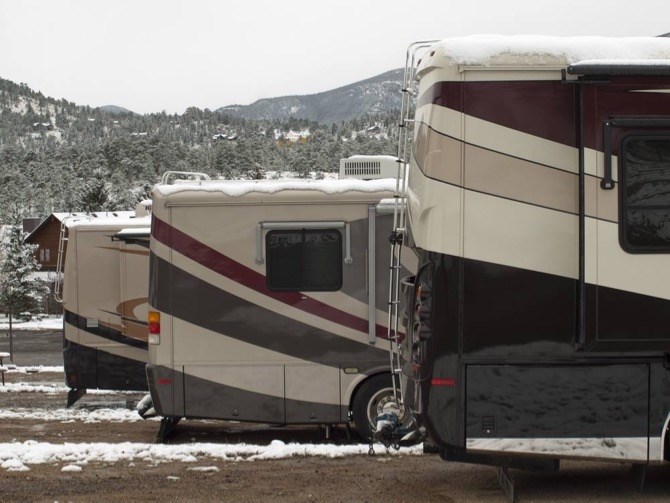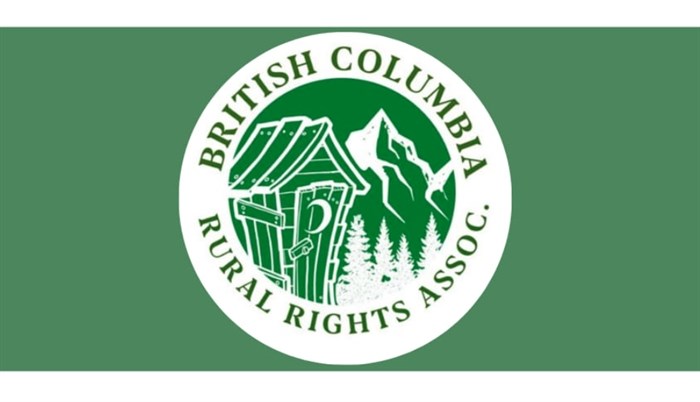
A TNRD bylaw states that living in an RV year round is not permitted, and residents are pushing back.
Image Credit: Shutterstock
September 30, 2019 - 6:00 AM
KAMLOOPS - What started as six people in the North Thompson concerned about an RV bylaw has expanded into a provincial movement for rural rights, with the B.C. Rural Rights Association working to abolish or amend legislation that they say limits freedoms.
It all started when a press release sent out by the Thompson Nicola Regional District in July reminded residents that year-round living in an RV was prohibited. People opposed to the bylaw against RV living made a Facebook group in response called North Thompson RV Rights, which has changed to the B.C. Rural Rights Association and now has more than 1,200 members. Tom Coles has been the unofficial spokesperson for the group, and says he will continue to advocate for the rights of people living rurally.
Coles has been allotted a 30-minute window to speak with the TNRD board on Oct. 17. He says he will share the group's concerns and suggestions, and hopes to clarify some of the miscommunications between the two groups and within the TNRD itself.
“There seems to be a vast discrepancy between the levels of the TNRD themselves in how these bylaws are interpreted and consequently how they are enforced,” Coles says.
Ken Gillis, chair of the TNRD, said that those who live in RVs and are given a removal order could move into an RV park, while Coles says that the bylaw prohibiting people from living in RVs also applies to those in an RV park.
“If they cannot live in an RV full time on their own land or as guests on another, to move to a park is not valid. Not unless the TNRD changes some of those rules,” Coles says.
In a case that began last July, a man operating an RV park in Lantzville lost a legal battle with the District of Lantzville. On Nov. 1, 2018, Stanley Pottie was ordered to remove the RVs from his property and was given a week to do so. After 30 days, the RVs hadn’t been relocated, and the judge allotted Pottie a six-month extension. Pottie protested that saying it was not enough time for the occupants to find other housing, but the judge dismissed an extension and ordered the removal of the RVs.
Coles says many of the people living in RVs are doing so because of financial difficulties and a shortage of available housing rentals. He says this issue is seen across the province and says without a change to the bylaw, some people may be left homeless.
“This is an issue that I believe is not going to go away, it's going to increase… it's not going to disappear by throwing threats and fines and harassment at people,” Coles says. “What we're are asking for is that the government enters into some kind of compassionate solution for this. There really is nowhere else to go but the street for some people.”
Another issue Coles highlighted is the confusion around visitor camping on one’s rural property. Coles lives in a home on a 60-acre lot and says this bylaw affects his ability to have friends and family stay over in their own tent or RV.
“Even with the 60 acres of land, we are only zoned for one residence and according to the TNRD, we are prohibited from hosting anybody else on this property,” Coles says.
Coles says there has been much confusion around letting people camp on one’s private rural property. Coles says members of the group were given the impression by a TNRD by-law officer that a two-week limit was in place for visitor camping, although it is not written in the bylaw. Gillis said that if that issue was addressed, a time limit would have to be enforced, and says amendments need not be written for such a scenario.
“Whether the bylaw officer has been granted some discretionary powers to make up some arbitrary numbers or has been instructed to do so by the department of development services remains to be seen,” Coles says.
The group has offered a space for those affected by the bylaw to share their stories, but Coles says some people are wary of sharing their personal experiences while the bylaw stands.
“Now that we have more membership, more of these stories are starting to emerge,” Coles says. “There are lots of people who have been intimated into silence afraid to come forward lest they be discovered and evicted.”
In addition to concerns from the rural community, Coles is concerned about the living situation for young people in urban areas. Coles says the rising popularity of those living in modified vans highlights the lack of affordable housing, and why alternate housing methods need to be allowed.
“It's happening everywhere, which I believe is indicative of the economic times that we're facing, simply living is becoming out of reach for many people,” Coles says. “If you go on Youtube, there is an entire genre called ‘Van Life,’ and a sub-genre called ‘Stealth Camping’…where a group of young people, young working, poor, they have nowhere to live, and they're forced to live in vans. They try to keep them as discreet as possible.”

The logo for the B.C. Rural Right Association.
Image Credit: FACEBOOK- B.C. Rural Rights Association
Coles says the B.C. Rural Rights Association organized their first community meeting in Clearwater on Sept. 11, which he says it was filled with concerned residents and two TNRD area directors, Sally Watson and Carol Schaffer.
“When we held our public meeting at the Elks Lodge (in Clearwater), we had announced that we had discussed the move from the (North Thompson) RV Rights group, which essentially was nothing more than a Facebook group at that point, into a more formal association called the B.C. Rural Rights Association,” Coles says. “Now that we're over 1,000 members, we've expanded provincially.”
Coles says the organization will first focus on abolishing or amending the TNRD bylaw that prohibits people from living year-round in RVs and then focus on other rural living issues. He hopes that with a recognized organization, other communities can create their own chapters and advocate for their own rural issues.
“We’re still in the process of forming our nucleus here in the region,” Coles says. “We’re in the process now of the applications for our incorporation in the B.C. Societies Act and membership cards, we have our logo and such, so we're moving forward.”
During the formation of the B.C. Rural Rights Association and throughout the talks with district officials, Coles reminds people that the rules remain, and those living in RVs could face penalties.
“In the meantime, the law still stands, and it's still being enforced,” Coles says. “People need to be made aware of this.”
The TNRD has recently released a survey to get a better sense of the concerns and issues faced by those living rurally and in their RVs. You can check out the survey here.
To contact a reporter for this story, email Jenna Wheeler or call (250) 819-6089 or email the editor. You can also submit photos, videos or news tips to the newsroom and be entered to win a monthly prize draw.
We welcome your comments and opinions on our stories but play nice. We won't censor or delete comments unless they contain off-topic statements or links, unnecessary vulgarity, false facts, spam or obviously fake profiles. If you have any concerns about what you see in comments, email the editor in the link above.
News from © iNFOnews, 2019